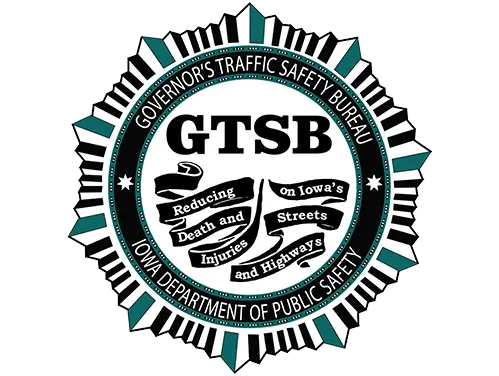April 25, 2024
DES MOINES, Iowa - May is Motorcycle Safety Awareness Month. The Governor’s Traffic Safety Bureau (GTSB) and the Iowa Department of Transportation are partnering to bring attention to a rising trend in motorcycle fatalities and encourage riders to be prepared and protected.
In Iowa, motorcycles make up just 4% of all registered vehicles and 0.33% of all vehicle miles traveled. Yet, in 2023, motorcycle fatalities accounted for 16% of total fatalities.
Similar to the way seat belts provide protection for vehicle passengers, helmets are a simple and effective way to reduce the likelihood of injury or death for those on two wheels. According to data from the past five years, 74% of people killed on motorcycles in Iowa were NOT wearing a helmet, while the national average is 38%. Iowa is one of three states in the country with NO helmet laws.
Additionally, the completion of a rider education and training course can increase confidence as a rider and ensure a safer riding experience. According to A.B.A.T.E. of Iowa’s website, a motorcycle rider’s judgment is critical. In single-vehicle crashes, rider error is the most common cause. Crashes with other vehicles also occur because either one or both operators make errors in judgment. Many collisions and injuries could have been avoided if the motorcycle rider had known when and how to swerve or brake.
Iowa’s Motorcycle Rider Education (MRE) Program includes two levels of basic rider courses for new riders and a returning rider course for those who have ridden in the past but haven’t been on a bike in several years. All three courses include time on a motorcycle to apply the following skills:
• Mental preparedness
• Perception development
• Situational awareness
• Risk evaluation and evasive strategies
• Basics such as riding in a straight line, turning, shifting, and stopping
Courses are offered across the state. Find a course here.
Whether you are on two wheels, four wheels, or more, it’s everyone’s responsibility to practice safe habits and Share the Road.
GTSB works with city, county, state, and local organizations to develop and implement strategies to reduce deaths and injuries on Iowa’s roadways using federally funded grants.
Source: Iowa DOT, NSC Injury Facts, A.B.A.T.E of Iowa
For information about Iowa DOT MRE Courses contact: Vania Boyd, 515.567.0145
ABOUT THE IOWA DEPARTMENT OF PUBLIC SAFETY
The Iowa Department of Public Safety (DPS) is the largest law enforcement agency in the state. It includes seven divisions and several bureaus, all working together with local, state, and federal government agencies and the private sector to keep Iowa a safe place by following our core values: leadership, integrity, professionalism, courtesy, service, and protection. Divisions within the Iowa DPS: Iowa Division of Criminal Investigation, Iowa Division of Narcotics Enforcement, Iowa State Patrol, Iowa State Fire Marshal Division, Iowa Division of Intelligence and Fusion Center, Professional Development and Support Services Division, and Administrative Services Division. The Department of Public Safety is led by the Commissioner who is appointed by the Governor.
Iowa Department of Public Safety
215 E. 7th St.
Des Moines, IA 50319
215 E 7th St
Des Moines, IA 50319
